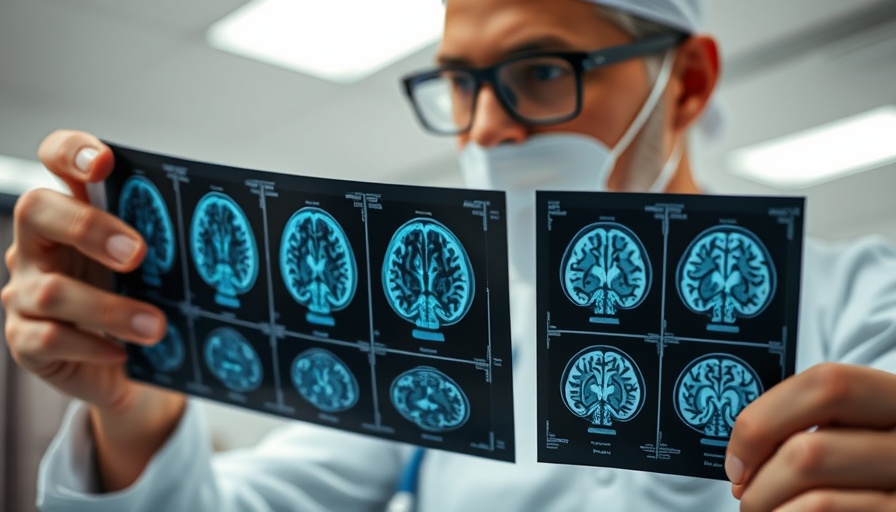
The Revolution in Traumatic Brain Injury Assessment
For more than fifty years, healthcare providers have relied on the Glasgow Coma Scale (GCS) to assess traumatic brain injuries (TBI). However, this decades-old method has faced mounting criticism for its simplifications, categorizing patients as either 'mild', 'moderate', or 'severe' based on their level of consciousness and a handful of clinical symptoms. As a result, significant nuances and patient needs might be overlooked, leading to potential barriers in care.
Introducing the CBI-M Framework
In an exciting departure, the new Comprehensive Biomarker Imaging and Modifiers framework, or CBI-M, represents a major leap forward in TBI assessment. Led by the National Institutes of Health and involving experts and patients from 14 countries, this innovative framework integrates clinical assessments, biomarkers, neuroimaging scans, and factors related to the patient’s medical history. The adoption of this enhanced assessment methodology is designed to offer a more nuanced understanding of traumatic brain injuries, paving a pathway for better diagnoses, treatment plans, and longitudinal care.
Understanding the Need for Change
Why is this overhaul so crucial? According to Dr. Kristen Dams-O'Connor, a key researcher in the development of the CBI-M framework, the traditional classifications have frequently failed to inform the acute-care needs of patients adequately. For instance, a patient categorized under 'severe' might be denied necessary life-sustaining treatments while a 'mild' TBI patient could have their symptoms minimized, resulting in inadequate care. This disconnect reflects both on the limitations of the GCS and on the urgent necessity for a more comprehensive assessment strategy.
Bridging Theory and Clinical Practice
The development of the CBI-M framework stems from years of rigorous research and investment in large-scale, longitudinal studies. This initiative underscores the importance of observing TBI symptoms and presenting factors in detail, enhancing our holistic view of brain injuries. As evidenced by initial findings, breaking down the GCS into its constituent parts—like assessing eye, verbal, and motor responses individually—can yield more informative insights for medical professionals.
Paving the Future: Implications for Patients and Practitioners
For patients, the CBI-M framework promises a tailored approach to TBI care. Better diagnostic tools can profoundly impact treatment plans, fostering a shift from a one-size-fits-all model towards a more individual-centric approach. For practitioners, this presents an opportunity to refine their understanding of TBIs and develop treatment plans that reflect the complexity of each case, enabling better long-term outcomes for their patients.
Learning from Successful Models: Real-World Applications
While the GCS has been a prevalent tool in emergency settings, the integration of the CBI-M framework draws inspiration from other medical fields that have successfully employed a multidisciplinary approach. For example, the field of cancer treatment has shifted towards incorporating genomic data and patient history more comprehensively, and now TBI assessments are likely to follow this model. This new framework not only aims for accurate diagnosis but seeks to empower patients within the healthcare system.
Concluding Thoughts on Health and Wellness Innovations
The enhanced assessment strategy for traumatic brain injuries introduces a new era in healthcare, especially as we consider its implications for health and wellness. Prioritizing accurate diagnoses improves not only individual patient outcomes but can also serve as a symbol of progress in the broader healthcare landscape. Engaging with such transformative changes reaffirms our commitment to holistic health and wellness, which is essential in today’s rapidly evolving medical environment.
Call to Action: As innovative health assessment tools like the CBI-M framework reshape the way we approach brain injuries, it’s vital to stay informed on the latest developments in health and wellness technologies. Following events and advancements in your area, like those in San Antonio, can provide you with valuable insights on optimizing your health management strategies.
 Add Row
Add Row  Add
Add 




 Add Row
Add Row  Add
Add 


Write A Comment